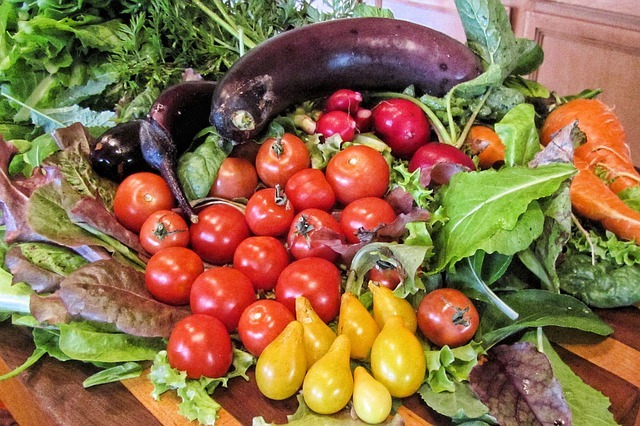Meat production causes harmful effects on environment, praises vegetarian diets
3 min read
Pixabay.com
By NATALIE FURMAN
It is no mystery where our meat comes from. Cows, pigs and chickens supply us with many of our favorite dishes, especially in the United States where we hold the title for the third highest meat consuming country in the world, recorded by the Food and Agricultural Organization of the United Nations in 2009.
In 2008, the average American’s yearly meat consumption was as follows: 84.9 lbs. of chicken, 63.5 lbs. of beef, 48.2 of pork and 17.5 lbs. of turkey. Moreover, it is estimated that the global meat consumption will double from the year 2000 to 2050.
However, with the popularity of vegan and vegetarian diets increasing, we must question this prediction.
I am sure you may have noticed the increase of vegetarian and vegan options available at restaurants and grocery stores. A number of brands, such as Amy’s and Nature’s Promise have been dedicated to creating solely vegan and organic meals. Even Giant has created an entire line of vegan products under their True Value line.
No-meat diets have also been trending among the stars with actors such as Anne Hathaway, Christian Bale, Hayden Panettiere, Natalie Portman and many more. Most people assume the reason behind choosing a vegan or vegetarian lifestyle relates to animal rights in some way, and for many people this is the case. But for some, living a meat-free life is their contribution to the world.
Vegetarianism is saving our Earth. Although many might argue that it is crazy, the truth is that the meat industry has a negative impact on our Earth and its environment. If you never considered vegetarianism before now, but consider yourself an environmentalist, then listen up, because you just might decide that eating meat is no longer viable.
The LEAD, Livestock, Environment, and Development initiative has brought together researchers, developmental institutions and many others to discover the impact of livestock onthe environment. For instance, did you know that animal agriculture has a significant impact on climate change and air pollution as well as land, soil and water degradation?
Livestock production accounts for 70 percent of all agricultural land and 30 percent of the land surface of the planet. Although the United States is one of the biggest consumers of meat, much of the livestock production is done elsewhere and majorly impacts tropical and sub- tropical areas.
Latin America, for instance, was subjected to intense deforestation and now much of the previously forested land is occupied by pastures and feed-crops for livestock production.
Overgrazing, erosion and compaction degraded the land and has impacted other aspects of the environment. Livestock production, for example, contributes to 18 percent of greenhouse gas emissions measured in CO2 equivalent.
Though greenhouse gas emissions are highly influential in climate change, they are not the only concerning type of emission produced from livestock production.
For instance, livestock production accounts for 9 percent of anthropogenic CO2emissions, 37 percent of anthropogenic methane and 65 percent of anthropogenic nitrous oxide. In addition, livestock production is a major contributor to anthropogenic ammonia emissions. They account for almost two-thirds of it.
So, how does all of this affect the environment?
Well, while CO2 emissions warm our atmosphere and contribute to global warming, leading to natural disasters, the widespread extinction of species, massive crop failures and much more, anthropogenic ammonia emissions contribute specifically to acid rain and acidification of ecosystems.
If these negative effects have yet to convince you to reconsider your meat intake, let me hit you with one more discovery by the LEAD Initiative: livestock production is depleting our fresh water supply through pollution.
For, if you were not already aware, the major sources of water pollution are animal wastes, antibiotics and hormones, chemicals from tanneries, fertilizers and pesticides used for feed-crops and sediments from eroded pastures.
The only answer to fixing these externalities of meat production is to lower our meat consumption. If vegan based diets are too much for you try vegetarianism and if that does not work for you, try eating meat on weekends or special occasions only.
If you are just really craving that big, juicy Five Guys burger then knock yourself out, but let us all be conscious of our meat consumption and the consequences it has on our planet.











